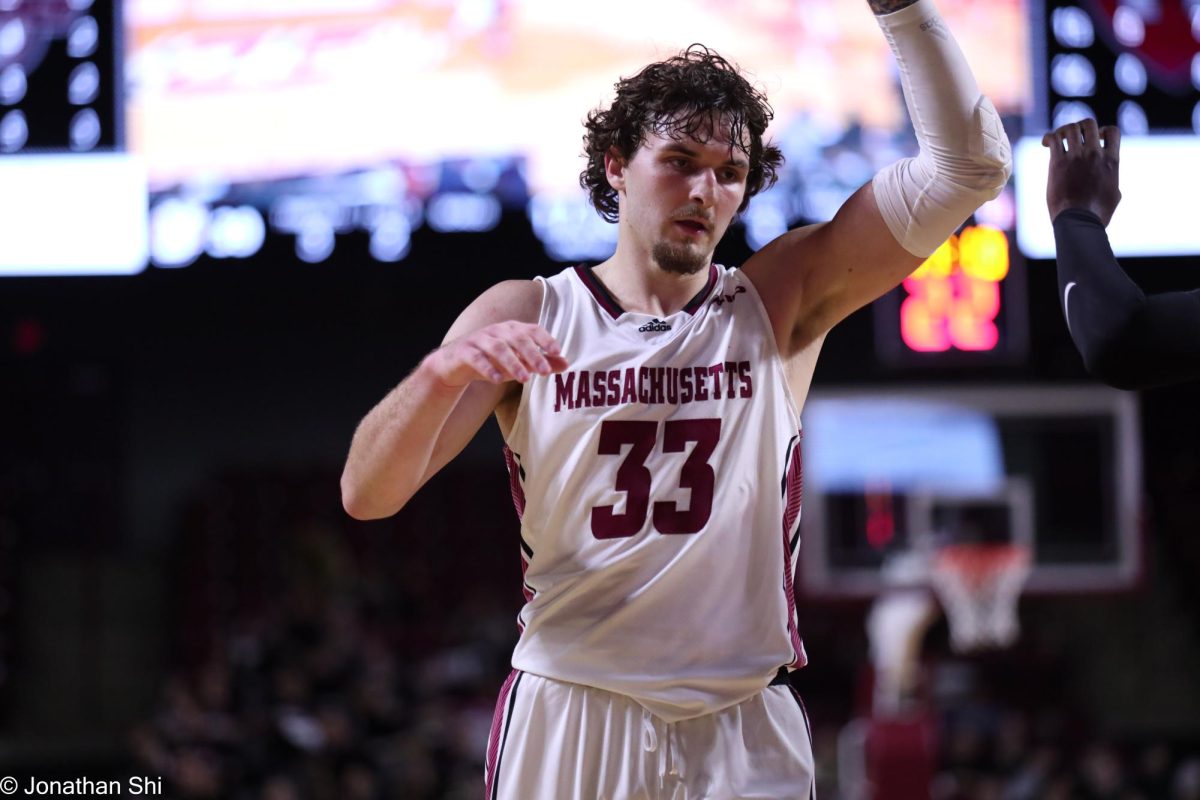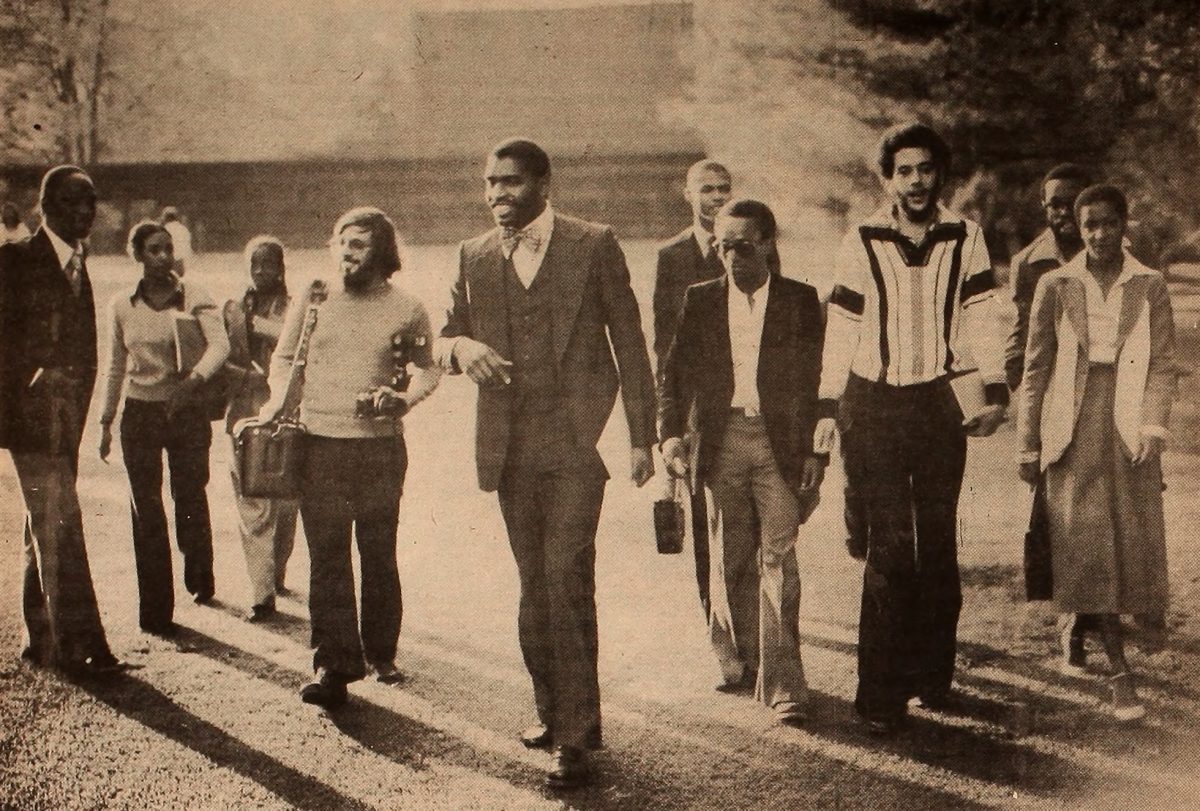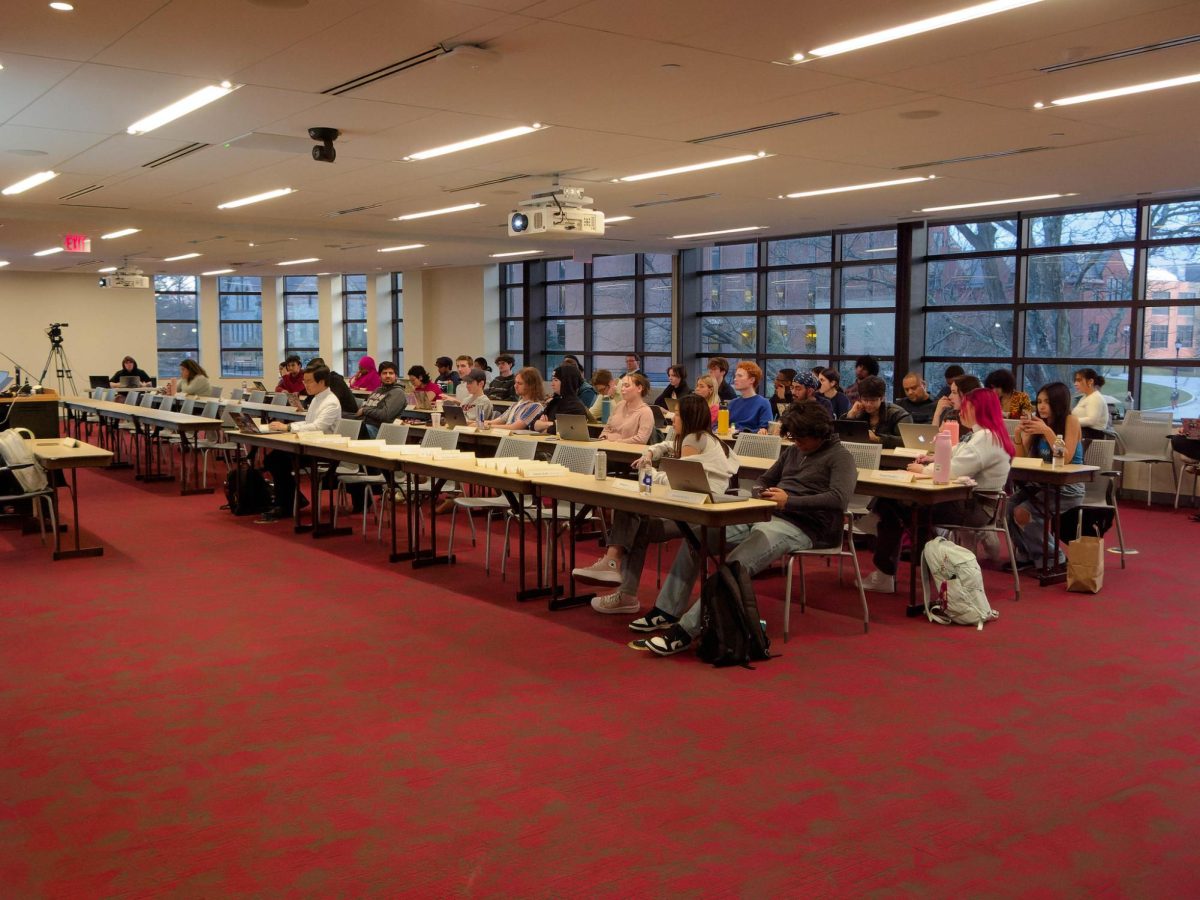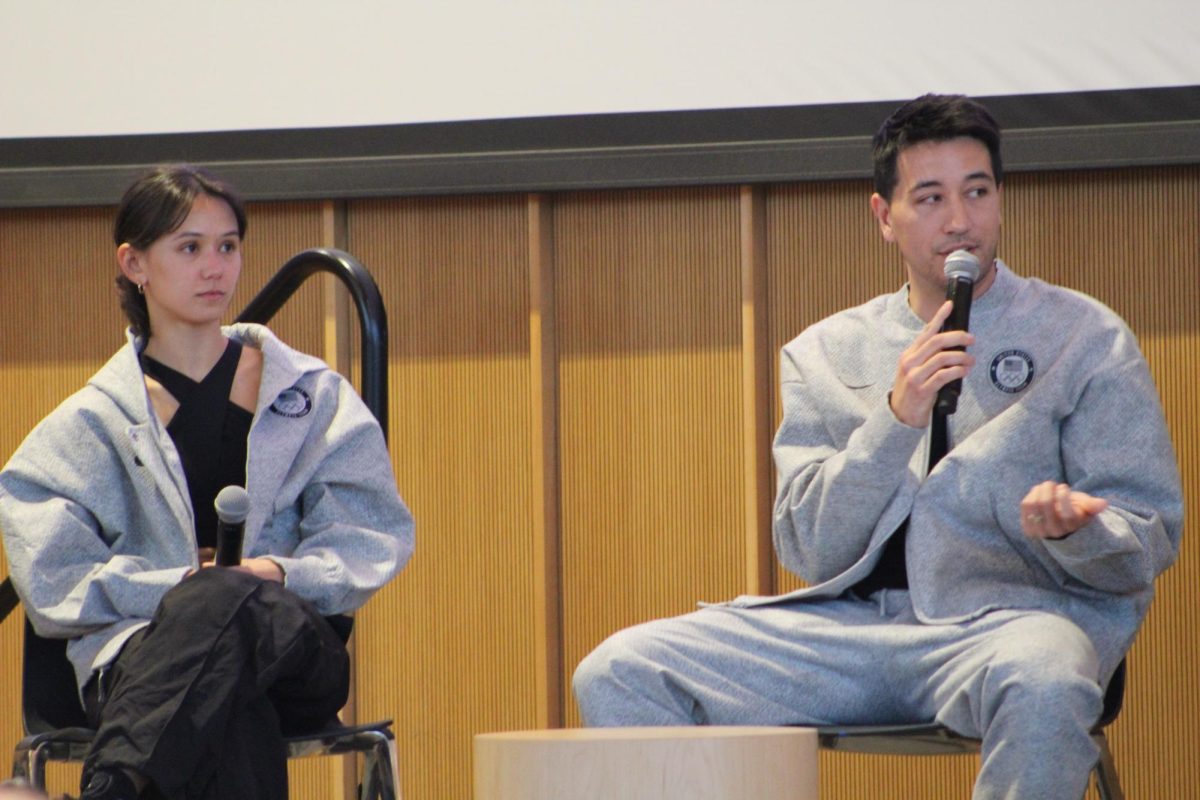
Lory Janelle Dance, a sociology and ethnic studies professor at the University of Nebraska-Lincoln, gave a presentation to students at the Commonwealth Honors College
Monday, discussing her research and intent to further study the interaction of racism within comedy.
The presentation was Dance’s prototype for a proposal that will be used to apply for a grant in order to continue her research and work on the subject.
Dance led the lecture by informing the audience on her inspiration for questioning the relationship between racial stereotypes and comedy.
She explained that inspiration was gained through numerous individuals who went about their work with a comical outlook. These inspirations dated back to high school class clowns and a geology professor at Georgetown University, her alma mater, who she said made even the most boring class bearable.
The lecture turned to be more of a discussion, as audience members were free to give opinion and comment throughout.
The event included a PowerPoint presentation on her research toward the subject, which guided audience members through her process. She provided a perspective on the effects of approaching racial stereotypes through comedic standards and rose awareness on the difference between intent and impact in comedy.
“Comedy may be used as a springboard to useful and socially conscious conversations,” Dance said. “To do that, you have to proceed with caution because comedy is so sensitive to context and who is watching or listening.”
Dance posed the question of defining humor. She then noted different minds have opposing definitions of humor and quoted such scholars as Sigmund Freud and Thomas Hobbes in their own interpretations.
Dance then added she was far more concerned with the phenomenology of humor and the idea it can be perceived with a perceptive eye focused on societal meanings behind it.
“Where does humor intersect with critical consciousness? I’m interested in how that can be used for different people and how it can be used for good,” she stated.
Audience interaction was the essence of the lecture as Dance frequently pursued recommendations for her grant presentation. Repeatedly she would ask if they felt different forms of humor were actually funny, such as a political cartoon or meme. She explained these forms of humor may reflect on racial stereotypes like looking at the physicality of a certain group in a negative light.
“We have to keep in mind that certain bodies have been ridiculed and stereotyped, such that the tendency to continue that might reflect a past misrepresentation,” Dance said.
Satirizing racism can be dangerous, she said, as it is difficult to determine whether or not audiences are perceiving the satire or the general racism itself as comedy. This is why Dance feels strongly that in order to use comedic mediums to raise critical consciousness, one must balance intent and impact, and question whether the intention of the comedian going to reflect its impact in society.
Despite this negative aspect, Dance also frequently advocated for the idea that addressing racism in comedy can lead to a greater discussion.
“If I get students laughing, we can have serious discussions,” Dance said.
In her research, Dance is eager to understand the types of comedic circumstances that allow room for reflection on social injustices and overall consciousness.
“What mixture of best practices and crucial cautions should we keep in mind in using humor as a springboard?” Dance asked.
After her lecture, Dance was keen on hearing from her audience and their questions or recommendations for her grant proposal. Onlookers commented mostly by providing their recommendations for specific examples in popular comedy they felt would be sufficient in assisting the validity of her presentation.
Lauren Crociati can be reached at [email protected].


















